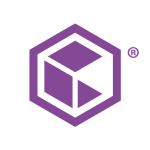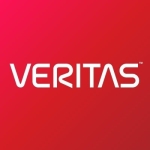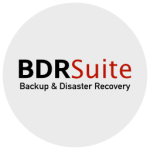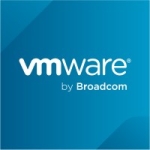What is our primary use case?
I am a cloud provider and I use Zerto to provide disaster recovery solutions for my clients.
Recently, we had an issue where one of our customers using Oracle Server experienced corruption in a database. The customer doesn't know when the issue started, so we used Zerto. We started to do a real-live failover for the machine, and we were able to determine the timestamp for the start of the issue. Prior to this, Oracle engineers tried for four hours to fix the database but did not have any luck in doing so. Ultimately, we were able to save the customer's data by using Zerto.
A few of my customers are using file-level restore but the majority of them are using the replication features for disaster recovery.
How has it helped my organization?
Zerto offers features for long-term data retention; however, we don't use them. The longest time that we back up data for is 30 days. At this time, I don't have any request for this from my customs, although in the future, if we have a customer that asks for it then we can provide it.
Zerto provides our customers with the ability to continue work, even if something happens to their office or data center.
We have a customer with an on-premises data center that replicates the environment to our cloud. One day, this customer had a water pipe burst in his data center. The entire data center was flooded and everything stopped working. We did a live failover and from that point, he could continue working but it was running from the data center in our cloud, instead. Zerto definitely saved us time in this data recovery situation.
It took the customer between four and five days to return everything back to normal onsite. During that time, he spoke with us at 9:00 AM on the first day, and after an hour, his company resumed work with our help. This reduced his downtime to one hour from approximately five days.
Performing a failback using Zerto is pretty much the same in terms of how long it takes, and how many people we require. The customer decides when to do the fallback; for example, it can be done during the night. We replicate the data at their chosen time and it avoids issues for them because they don't operate during those hours.
In a situation like a burst water pipe or a database becoming corrupt, Zerto doesn't help to reduce the number of staff involved. The reason is that when something affects the company, management, including the CEO, has to be involved. They do not deal specifically with operating Zerto but rather, they wait for things to develop. The good part is that they know that with Zerto, they have a solution, and they don't need to figure out what to do.
In terms of the number of people it takes to recover data in cases like this, there is typically one person from our company involved, and one person from our customer's company.
My customers save money using Zerto and our facilities, rather than a physical data center because they do not have to do any maintenance on the backup equipment. It is also much easier to pay one company that will do everything for them.
Using Zerto makes it easier for my clients, giving them time to work on other things. The main reason is that they don't have to maintain or upgrade their environment. Not having to implement new recovery solutions as their needs change, saves them time.
What is most valuable?
The most valuable feature is the ability to do disaster recovery.
Zerto is very user-friendly and engineer-friendly, as well. When we need to create a new Virtual Protection Group (VPG) for replication, then it is done with just a few clicks of the mouse. We can see all of the environments and we don't need to install agents on the customer's VMs.
The live failover feature is very helpful.
With regards to providing continuous data protection, it's great. Most of the time, it's about five seconds for replication.
What needs improvement?
The monitoring and alerting functionality need to be improved. Ideally, the monitoring would include the option for more filters. For example, it would be helpful if we could filter by company name, as well as other attributes.
For how long have I used the solution?
I have been using Zerto for almost three years.
What do I think about the stability of the solution?
Zerto is a pretty stable product. We have had issues from time to time over two years, but usually, it is stable. When we have trouble then we contact their excellent technical staff.
What do I think about the scalability of the solution?
I have quite a lot of customers that are using Zerto for disaster recovery and it is simple to scale. Our intention is to increase our usage by bringing on more customers that will replicate from their on-premises environment to the cloud.
In my company, there are five or six people who work doing the backup and recovery operations. On the client's side, they normally have one or two people that are in charge of maintaining the data center.
The size of your environment will depend on how many VMs you need to replicate. For example, if you are replicating 100 VMS then you can use a small environment. However, if you are replicating 1,000 or more VMS then you will need a stronger and larger environment, with more storage and more memory.
How are customer service and technical support?
The technical staff is excellent and we contact them whenever we need something.
We had a customer that replicated his VM and for some reason, when we tried to do a failover test, the VM came back with an error saying that the network card was disconnected. We spoke with the Zerto technical staff and they actually implemented an ad-hoc fix for our environment. In the next Zerto version update, they released it for all their customers.
The technical support is definitely responsive and they explain everything.
Which solution did I use previously and why did I switch?
I began using Zerto version 6.5 and am now using version 8. We did not use a different solution for disaster recovery beforehand.
We use Veeam for backup tasks. We looked at Veeam CDP to compare with Zerto, and Zerto is definitely better. It is more user-friendly, agentless, and the technical support is better.
How was the initial setup?
The initial setup is straightforward and pretty easy to complete. It takes about an hour to deploy. During the process, you set up the Zerto server to see the whole environment. You then install VRAs on all of the hosts. In general, the management server is pretty user-friendly.
The implementation strategy changes depending on the customer. We did have a few customers that required a more extensive setup because one had an IPsec connection, and a few of them were using point-to-point connections. That's the only strategy. But with Zerto, they need to decide which VMs they want to replicate, and then we create it based on that. First, we will want to replicate the DC, the domain controllers, and then we will want the infrastructure servers, and then the database servers, and the last one is the application.
During setup, one person from our company normally works with one person from our customer's side. Only a single person is required for maintenance.
What's my experience with pricing, setup cost, and licensing?
My impression is that Zerto is more expensive than other solutions, although I don't have exact numbers.
Which other solutions did I evaluate?
We evaluated CloudEndure and we also had Double-Take, but neither of these solutions worked well. These solutions were based on agents, which affected the customers' server performance.
In terms of usage, Zerto is a different level of experience when compared to other products. It is easier to set up and use.
With other solutions, we need to install software on the customer's server and then reboot, whereas, with Zerto, we don't need to do these things. In fact, there is no downtime on the customer's side. Depending on the customer's environment, post-installation downtime may have been as little as one minute, or more than an hour.
In situations where downtime is expected, and there is an important application like a database running, these periods need to be scheduled. Normally, downtime will be scheduled at night, after business hours. Although there may not be a disruption in work, it is an extra effort that needs to be put into the other products.
What other advice do I have?
Looking ahead, I have seen that the next version of Zerto will support Salesforce replication. This could be something that is useful for my customers.
The biggest lesson that I have learned from user Zerto is that every organization should have a disaster recovery plan. My advice for anybody who is considering this product is to calculate how much it will cost in the event of downtime or a disaster, and then compare it to the cost of Zerto. Once this is done, people will opt for a disaster recovery solution.
I would rate this solution a ten out of ten.
Which deployment model are you using for this solution?
Private Cloud
Disclosure: PeerSpot contacted the reviewer to collect the review and to validate authenticity. The reviewer was referred by the vendor, but the review is not subject to editing or approval by the vendor.















